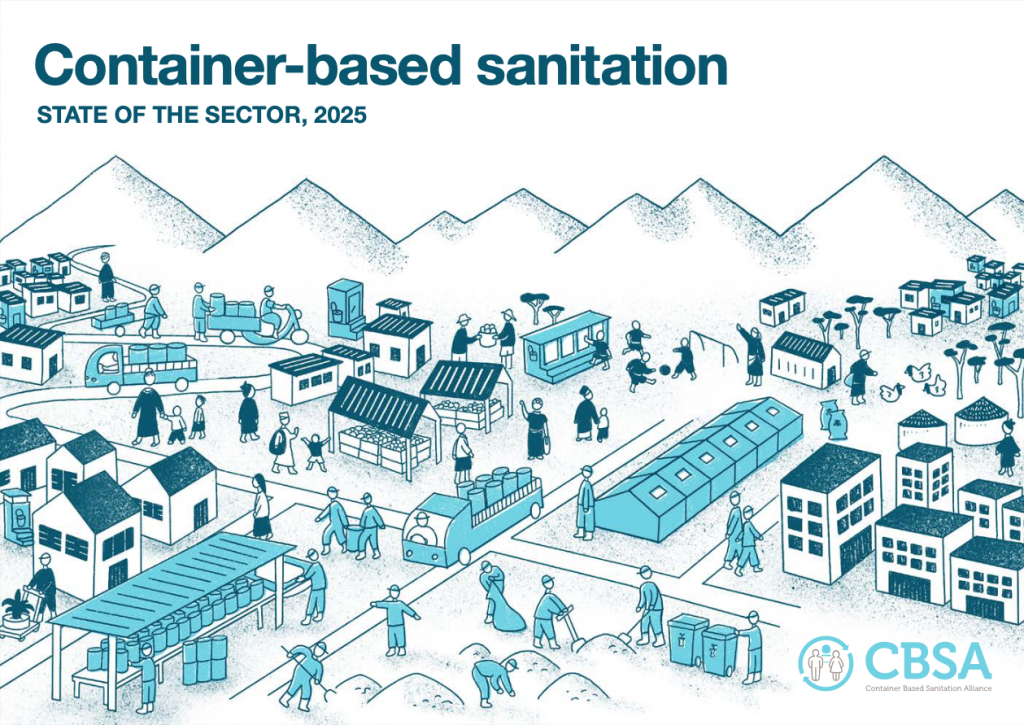Momentum meets opportunity.
In densely populated urban areas and informal settlements, conventional sanitation solutions are often impractical. Particularly effective in hard-to-reach communities, container-based sanitation has emerged as a vital force in the global push for universal access, providing safely managed household sanitation as recognised by the Joint Monitoring Program. As of 2025, more than 432,000 people are accessing CBS services, showing its growing reach and effectiveness.
Insights and impact figures are explored in depth in Container-based sanitation (CBS): State of the sector 2025, available in English, French, and Spanish – along with an executive summary for a quick overview.
Find out more, watch the online launch, which took place on 16 October 2025.
Explore the resource
The momentum
A sector growing in scope, strength and impact
Between 2019 and 2025, CBS user numbers increased more than sixfold. The sector is demonstrating new models of public–private collaboration, stronger performance data, and alignment with municipal goals – clear signs of a maturing, resilient service model. Yet, significant unmet demand remains. Unlocking CBS’s full potential requires access to start-up capital for new operators and broader financial innovation to support growth-stage and emerging providers.
Government adoption is key to unlocking scale
Scaling CBS is not simply about expanding service delivery – it requires CBS to be treated as a mainstream sanitation option. Support from governments and utilities is growing but authorities can unlock scale through supportive policy, regulation, urban planning, and budgeting, supporting safety, quality, and acceptability concerns.
Innovative financing is paving the way for CBS sustainability
New financial pathways – powered by innovative finance including climate and outcome-based funding – are making CBS more attractive for public investment. Outcome-based finance is already making an impact, with $4.5 million mobilised so far by SOIL in Haiti and Fresh Life in Kenya. Closing funding gaps will require scaling outcome funds, leveraging transitional government finance, and attracting multilateral and philanthropic investment.
A standout climate-smart approach
CBS is gaining recognition for its substantial climate benefits, with studies showing up to 93% lower emissions than pit latrines or septic tanks. Recognition by Green Climate Fund guidelines signals growing institutional support, positioning CBS as a key part of climate-resilient sanitation strategies.
The opportunity
CBS can help leave no one behind, but achieving its full potential requires collective action to:
- Help new operators emerge: Expand access to capital and ready-to-deploy models.
- Support current operators to grow: Reduce barriers, streamline funding, and integrate CBS into formal service frameworks.
- Encourage public adoption: Strengthen government leadership, regulation, and incentives.
- Mobilise better finance: Leverage climate funds, carbon credits, and outcome-based financing through strong partnerships.
Discover how we can work together to scale inclusive, resilient and professional sanitation services.
